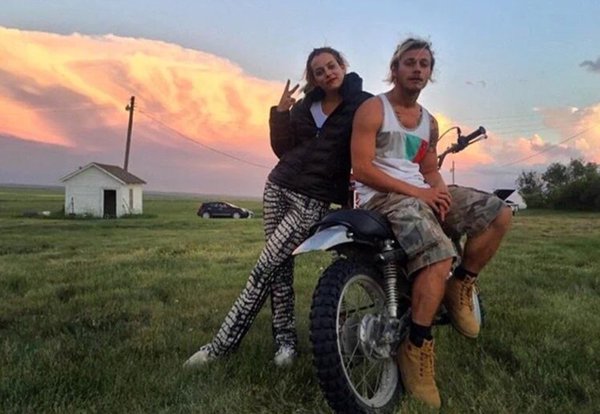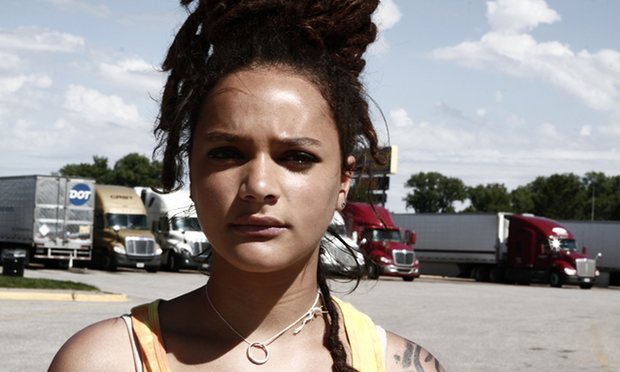
I have always taken issue with media’s portrayal of the American South. Whether it’s the backwoods horror of Deliverance or the hometown utopia of Steel Magnolias. That is not to say that these examples are bad pieces of media, both Deliverance and Steel Magnolias are seen as classics in certain circles, and rightfully so. But I have always found myself appreciating directors like David Gordon Green (All The Real Girls and Joe, specifically) for depicting an American South that feels real to me. The texture, the atmosphere, the score, and especially the way people speak in his films really invokes an authentic South. When you watch his Southern films, you can tell he’s actually been there.
I lived in Georgia for 22 years. It’s a very specific experience that stays with me no matter where I go. When I write, I instinctively set my pieces in Georgia. It’s not my favorite setting, but I would rather tackle it than allow it to be portrayed stereotypically. I want people to see the South as a place that’s real. Flawed, but authentic.
Which brings us to American Honey.

American Honey (written and directed by English auteur Andrea Arnold) is apparently one of the most real films to come out this year. It’s authentic. It’s gritty. The characters feel like real people. The film moves at a lyrical pace. We glide from scene to scene of magnetic people having seemingly mundane conversations. It’s like mumblecore done right. It’s a REVALATION…
…on paper.
In practice, it’s an exploitation film about a young biracial woman who abandons her depressing, abusive life to start another depressing, abusive life with pretty white people who love to say the word nigga and listen to a relentless amount of rap music.

As a black woman from the South watching this, I kept asking myself “why?”
- Why is it that I walked into an indie movie theater in New York City to see depictions of all the racist poor white folks I grew up with being portrayed with these bullshit “On the Road” poetics?
- Why are these racist white folks being glorified with beautiful cinematography and a mesmerizing score?
- Why are all my favorite hip-hop tracks being ruined?
- Why is it that whenever I hear hip-hop in mainstream film it’s always populated by mostly white people?
- Why am I watching a young woman of color be emotionally and sexually abused by an older white man who likely has no respect for her or black people in general?
- Why is Star the only woman of color in the entire film?
- Why was there a scene of them running into black men and getting their approval and acceptance?
- Why is Riley Keough wearing a Confederate flag bikini?
- Why is this film uninterested in the way that this black woman is needlessly marginalized by all the white men around her, from her father to Jake?
But by far my biggest question was:
Why is this part of Southern experience most fascinating to this UK-born director?
Here’s my best guess:
Because it’s white.

It has all the fixings of a “diverse” story – flavor, hip-hop aesthetic, a lead of color – without addressing any of the concepts that make it diverse. How is it that Star’s confederate flag loving daddy hooked up with a black woman to create Star? What was that parental experience like for Star? How does she feel about her race? Was she alienated in a community full of rednecks as a half-black woman? Or did she pass? Is she okay with all the white people around her saying nigga because that’s what she’s used to back home?
Star is a perfect example of the problem with colorblind casting because her race barely plays into the story. You could see it’s implied, but it’s implied with so little nuance I found myself (as a black woman) wanting more. And I never got it.
I’ve read some reviews and comments from people of color, saying that the film really nailed down what it’s like to be black in the South and marginalized by the white people around them. I think that is true. I definitely felt that. But I do not believe the film did it on purpose. I think it was simply a byproduct of how the film was set up.
Think about it: If the film was developed with her race in mind, why is the film itself so uninterested in addressing race?

These questions plagued me through the entire film.
In the end, I left the theater feeling hollow and violated.
I had watched white girls grind to Ciara’s “Ride” (one of my favorite songs by that artist). I had watched a band of out-of-control white people toss around a word they had no business using. I had watched a woman of color be bullied by a white woman wearing a Confederate flag bikini.
And finally, I had watched an uncomfortable love triangle in which a 30-year-old man made controlling advances to a girl who is supposed to be 18, while simultaneously fucking the racist white woman who victimized her.
There is also the tiny tidbit that it was clear Star wanted to get pregnant by Jake and they didn’t use protection during any of their encounters.
So she could totally be pregnant. Which is, Todd Solondz level disturbing.
American Honey is the kind of film that is objectively good from an aesthetic standpoint but the themes are barely thought out and the results are a racist and callous story that essentially romanticizes abuse and racial microaggressions because FREEDOM, MAN. THE OPEN ROAD –
To despair and heartache.

Filmmakers really need to start interrogating why they choose their subjects. Why are hedonistic white people showing their privilege across the South something that needs to be seen? Doesn’t media have enough hedonistic tales of white people going around and doing what they want with no consequences? Do filmmakers not understand their white characters are so “free” because society allows them to be and their films glorify that behavior?
Those are important questions. Here is one more:
Terrific review!
LikeLiked by 1 person
OMG, I was thinking the same thing by just watching the trailer!!! I don’t know what the goal of this movie was, but it really does exploit the biracial girl’s emotions towards herself possibly and, as a black woman, this made me legit cry. I’m happy I found this!!
LikeLike
I watched this movie and thought all the characters, except Star, were disgusting. She was the only one who had any hope. The crew she traveled with were tragically irredeemable, all were headed for a sad dirty future. I saw absolutely no glorification of white people. Quite the opposite
LikeLike
That’s your opinion, but your comment doesn’t seem to engage with the full piece I wrote or my argument about film and the way it depicts the South. I wrote this piece to alert readers to think about the way cinema depicts the South and the subjects in which they choose to highlight. It’s a much larger argument than your personal take on the characters.
LikeLike
Have to remember this is a film about Millennials. Race doesn’t matter to them as it does to the rest of us older generations. The film deliberately avoids (as much as possible) topics like race, teen pregnancy, domestic violence & other movie cliches, to concentrate on the despair these kids have suffered. It provides them with a sense of family. A community of their peers with a strong bonding mechanism which is what they are searching for. It is movie you rarely see – about people finding a place they feel at home. Which is really what most of us are searching for. No matter how misguided the situation.
LikeLike
I am a millennial. I am a 24 year old black woman who grew up in Georgia. You don’t know what you’re talking about. You have zero insight to give to me. You know nothing about racism or abuse, which I and countless other black girls have experienced. It was a lazily written film that was nice to look at. There is nothing else there I find necessary of merit. I said what I said. I stand by my piece. And I firmly believe that you are wrong on all accounts.
LikeLike
This film indeed had a ton of wasted potential, those are the film failures that hurt most of all. I can easily brush off a mediocre film that was never going to be good(I.E. those damn Smurfs films) or even total trainwrecks(the Twilight movies) but when a film has a chance to say something meaningful or insightful and totally blows it, that really stings. That’s what pissed me off about Southland Tales, it could’ve had something interesting to say, but it was little more then a pretentious circlejerk for Richard Kelly(any film that requires you to read THREE tie-in graphic novels in order to understand what the hell is going on is doomed from the start).
LikeLike